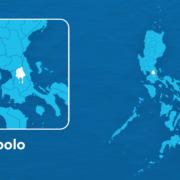Sandiganbayan throws out 1987 case vs Kokoy Romualdez

The Sandiganbayan has thrown out the P110-million alleged ill-gotten wealth case against the late Gov. Benjamin “Kokoy” Romualdez and his wife, Juliette, citing “inordinate delay” as the case has dragged on for nearly four decades and could affect the integrity of the proceedings.
According to the June 26 ruling of the Special Sixth Division of the antigraft court, the Presidential Commission on Good Government (PCGG), as the plaintiff in the case, completely failed in explaining the long delay in building the case for it to reach trial.
“The 38 years expended by the plaintiff in prosecuting this case and its utter failure to provide sufficient justification for said delay constitutes inordinate delay,” read part of the court’s 13-page resolution. “This has prejudiced defendants as the hiatus has adversely affected witness’ recall and the quality of evidence that defendants’ heirs may adduce in their defense.”
The PCGG, the court noted, also was not able to pinpoint the issues that were deemed “complex” and how the “voluminous nature” of the documents impacted the prosecution of the case.
Imelda’s younger brother
The original complaint for the reconveyance, reversion, accounting, restitution and damages filed in 1987, docketed as Civil Case No. 0035, involves the sequester of funds and shares of stocks of Romualdez-owned Palm Avenue Holding Co. Inc. and Palm Avenue Realty Development Corp., collectively referred to as Palm Companies.
Believing that the companies were part of Romualdez’s unexplained wealth, the PCGG sequestered them in 1986 and seized over P110 million in stocks and funds.
The latest resolution on the case was a response to the motion to dismiss filed in February this year by the camp of Romualdez, a younger brother of former first lady Imelda Marcos and brother-in-law of the late dictator Ferdinand Marcos Sr., and the father of Speaker Martin Romualdez.
Right to speedy trial
Romualdez was a longtime governor of his home province of Leyte and had served as the Philippine ambassador to the United States, Saudi Arabia and China.
Romualdez, who died in 2012, was represented in the case by his heirs, including the Speaker. His family has denied the long-held view by critics of the Marcos Sr. regime that he was a “crony” of the ousted dictator.
The Sandiganbayan cited two other grounds in granting the Romualdez’s motion, namely that the defendants’ right to a speedy trial was “violated;” and that the defendants could not be perceived as consenting to or having a role in the delay.
“Plaintiff’s assertion that defendants’ active participation in the proceedings is tantamount to acquiescence to the concomitant delay is a red herring. Neither does it render kaput defendants’ right to speedy disposition of the case,” the court said.
Delay at Ombudsman level
“Considering the vast duration required just to reach this preliminary phase, it is reasonable to think that the case’s final resolution would further consume a prodigious interval,” it added.
The resolution was authored by Associate Justice Kevin Vivero. Associate Justices Lord Villanueva, Arthur Malabaguio and Juliet Manalo-San Gaspar concurred.
Only the division chair, Associate Justice Sarah Jane Fernandez, dissented, saying that the delay in the proceedings was “not unreasonable.” In her 12-page dissenting opinion, Fernandez stressed that the Sandiganbayan—not the PCGG—should be in a “better position to justify the delay because it is more familiar with its own records and proceedings.”
She cited the 2018 Supreme Court ruling in Cagang v. Sandiganbayan, where it asserted that the prosecution should explain because the delay happened during the preliminary investigation by the Office of the Ombudsman.
“In contrast, the present case is a civil case and the delay complained of occurred during the proceedings in the Sandiganbayan,” she noted.
Fernandez also gave weight to the sheer volume of court records and the complexity of the case, which had been passed on from the Second Division, the Fifth Division to the Sixth Division. According to her, the courts, including the high tribunal, never slept on the case as parties raised various motions that had to be resolved.
“Also increasing the difficulty in resolving the present case is the fact that the original records of the present case had been elevated to the Supreme Court, after matters which were raised and resolved by the Sandiganbayan were elevated by the parties to the Supreme Court,” she said.
Timing questioned
The division chair also questioned the timing of the filing by the Romualdez camp for the dismissal of the case.
“They could not have been unaware that the present case is still ongoing,” she said.
“Despite having every opportunity to do so, they invoked their right to speedy disposition of cases for the first time only in their instant motion to dismiss, almost 38 years from the filing of the original complaint.”
In March, the Sandiganbayan denied the petition of Palm Companies to order the PCGG to pay the compensatory interest for the sequestered assets. This affirmed that the Romualdez-affiliated companies were not entitled to any monetary interest or damages because the PCGG was “never a debtor” and had no obligation to pay them.
“The only interests the Palm Companies are entitled to are whatever interests that were actually earned by the subject funds, the said interests being fruits of the principal amount,” it said in the March 18 resolution.

















